Curbing climate change seems a nearly impossible feat, so daunting that many Americans give in to “climate fatigue” and avoid taking action out of a sense of hopelessness and avoidance.
But the enormity of a challenge has never stopped paleontologist Dr. Lonnie Thompson, whose very career defies the odds and represents the triumph of determination over cynicism, as filmmaker and Wilmette native Danny O’Malley shows in his acclaimed film Canary. O’Malley will screen and discuss the film April 13 at the Wilmette Theatre.
Thompson grew up in coal country in West Virginia, where many still deny humans are causing climate change, and the assumed future for a working-class kid like Thompson was in the mines. But Thompson became a prominent scientist whose work on glaciers in the Andes and Himalayas has advanced understanding of climate change.
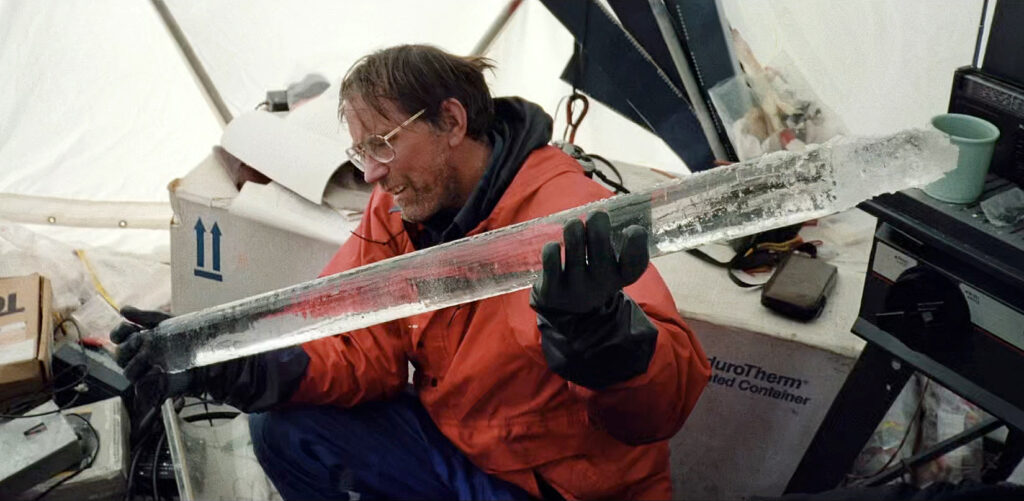
Even within the field of glaciology, Thompson defied expectations, focusing on non-polar glaciers that were thought too difficult to study because of their extreme altitude. He spent a total of more than four years above 18,000-foot elevation, and managed to transport six tons of equipment to such heights to drill ice cores deep in the glaciers. He continued to do this work — necessitating harrowing treks up mountains and glaciers — even after a 2012 heart transplant. Three years after the operation, he collected ice cores at 22,000 feet altitude in Tibet.
Faith in achieving the seemingly impossible was also crucial to the very making of Canary, which premiered at Climate Week NYC in September 2023 and has since won numerous accolades and awards.
O’Malley and his friend Alex Rivest, the film’s director, needed to lead a film crew loaded with expensive heavy equipment to an 18,000-foot-elevation Peruvian glacier, with dangerously thin air and stormy weather, to document Thompson’s collection of ice cores from glaciers that are rapidly receding.
But O’Malley and his colleagues pulled off the feat, creating a moving chronicle of a scientist who — along with his wife, fellow paleontologist Ellen Mosley-Thompson — has been sounding the alarm about climate change and logging its effects for half a century.
The film received support from outdoors outfitter REI, and was noted by publications from The New York Times to Variety. It has screened at the Museum of Contemporary Art in Los Angeles; the National Academy of Sciences in Washington, D.C.; additionally, Rivest and O’Malley were invited to talk about science communications at The American Philosophical Society.
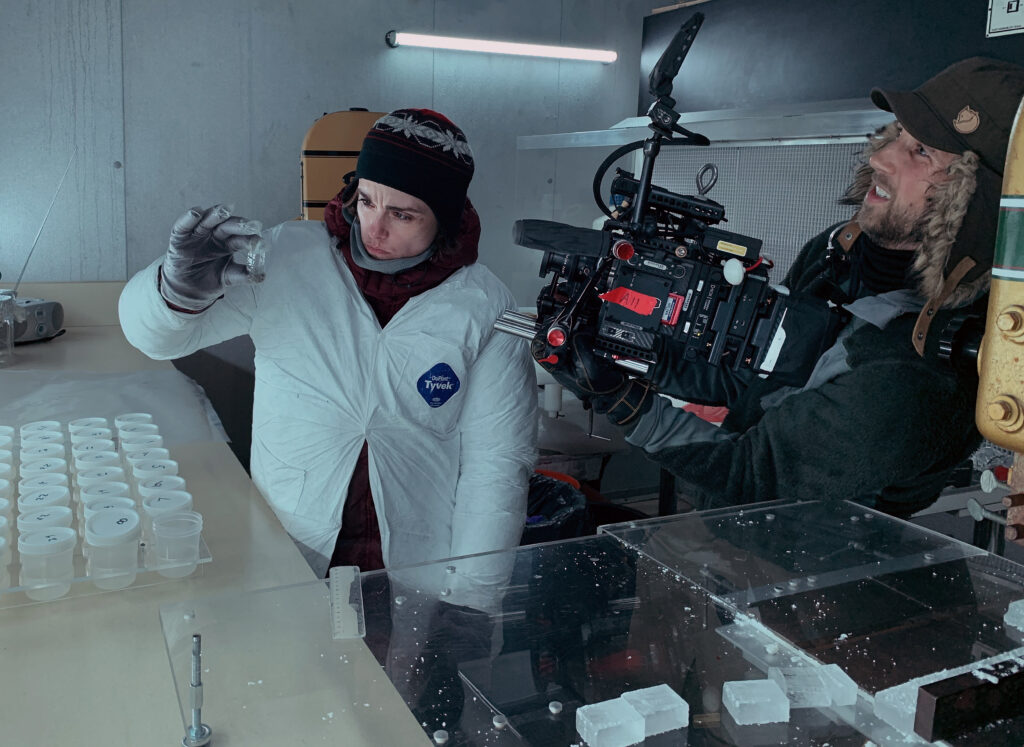
“The film has taken on a life of its own that is quite beautiful,” O’Malley said. “We’ve had people who denied the science of climate change come around to believing the science. We’ve even had someone say that the film made them believe in the power of dreams again. When we made this film, we thought it would change a few people’s minds on climate change, but we couldn’t have predicted all the ways it would change people’s lives.”
Science and Movies
Growing up on the North Shore, O’Malley was drawn to science from early on.
“I learned the scientific method at Wilmette Junior High,” he reminisces. “At New Trier [High School] I learned proofs and trigonometry. All that logic and seeing the power of it in school really clarified how to navigate the world for me.”
O’Malley’s other love was cinema. “My mom would drop me off at the movies, I’d buy tickets to PG-13 movies and go to R-rated ones. It was the ‘90s, an amazing time for independent films.”
Now 38, O’Malley went to film school at the University of Southern California, and paid his dues in the industry, graduating at a particularly difficult time during the Great Recession that followed the economic crash of 2008. He was happy to work for free or pocket change, including filming and editing shows by the indie bands he followed. He went on tour with the rock band The Rentals, which included his friend and fellow piano student Lauren Chipman. That led to filmmaking gigs with other prominent bands including the well-known Canadian pop duo Tegan and Sara. His documentary for Tegan and Sara’s Get Along was nominated for a Grammy for Best Long Form Music Video.
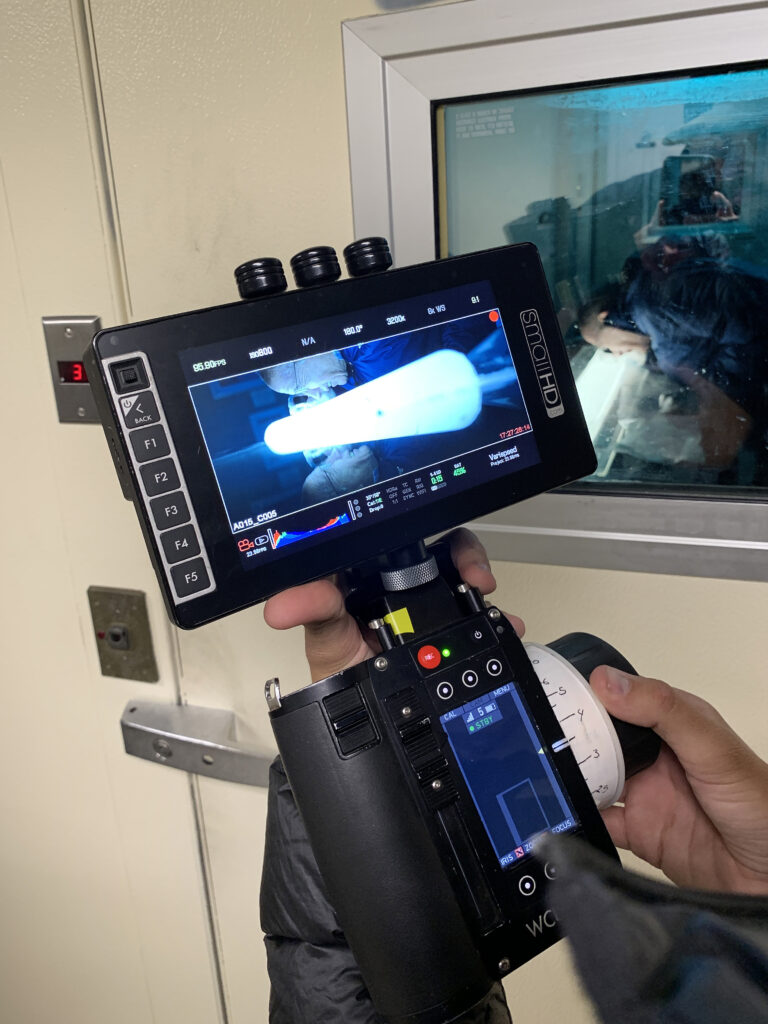
Such work eventually led to a job at Boardwalk Pictures, where he started as an assistant editor and quickly moved up the ranks. “The science mind kinda came in handy — I would pay attention to when the notes came in, when people had problems with scenes, when they didn’t,” he said. “I would track what changed, I started getting really good at understanding how people react to different scenes and why.”
O’Malley became co-executive producer and director for the docuseries Chef’s Table, Netflix’s longest-running show and an Emmy nominee, profiling the culinary and personal stories of chefs around the world.
O’Malley met Alex Rivest in 2014 when Rivest married one of O’Malley’s friends. Over a long dinner in Little Tokyo in Los Angeles, where O’Malley had lived since college, they bonded over their shared love of science. That very night, they hatched the idea for a TV series highlighting the work of inspiring and unusual scientists.
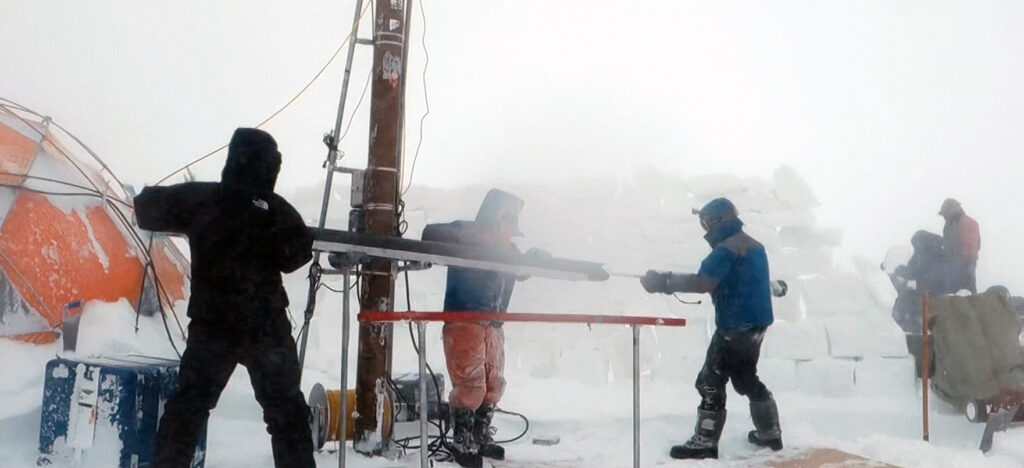
Rivest, a neuroscientist, knew good science when he saw it, and O’Malley intrinsically understood what human narratives would engage the general public. Rivest and O’Malley agreed that most of the science shows they’d seen made watching feel “like homework,” and they wanted to create something different, especially at a time when skepticism and even hostility toward science was spiraling.
The newfound friends and colleagues immediately dove into research and brainstorming. They developed a list of hundreds of fascinating scientists, and narrowed it to 50, including Thompson, whose tale they longed to tell. But Thompson — a distinguished professor at The Ohio State University, and senior research scientist at OSU’s Byrd Polar Research Center — did not have any field work planned.
In 2017, O’Malley and Rivest secured an Alfred P. Sloan development grant, and traveled to document scientists with exciting work in far-flung locales:
A biochemist who wrangled poisonous snakes in Asia and harvested their venom for pharmaceutical research. A biologist studying lion populations in Tanzania who was evicted from the country because of his alarming findings linking overhunting to government corruption. A female paleontologist in Egypt who was told she could never succeed in the field because of her gender — but proved the skeptics wrong.
As they were marketing the television series proposal, O’Malley received news that stopped them in their tracks.
“I got an email from Lonnie saying, ‘I’m going to the glacier that started my career — are you guys still filming?’” O’Malley recalled. “We were not still filming, we had spent all the money. But we said, ‘Of course we’re still filming.’ We had three months to figure out how to film a movie at 18,000 feet, how to get the Chef’s Table crew up a mountain, how to pay for it all.”
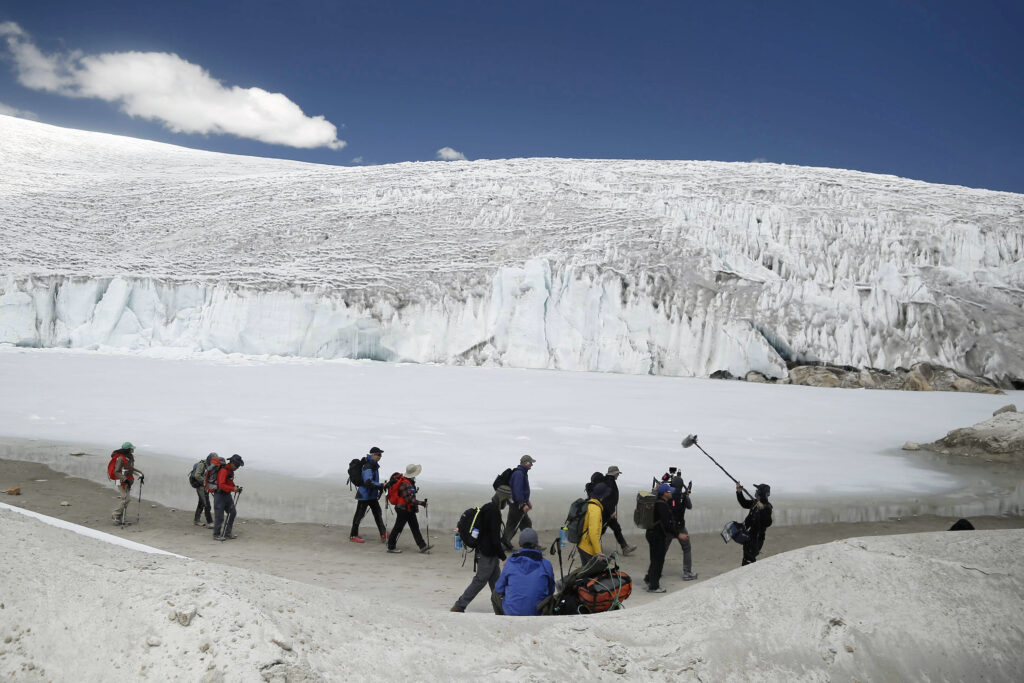
O’Malley slept in a tent with low oxygen to prepare his body for air so thin it can cause serious illness and delusion. He hiked up nearby Mount Baldy and other peaks. The crew trained on exercise bikes with masks limiting oxygen.
“You just don’t know how your body is going to react, so we did everything we possibly could to prepare,” O’Malley said.
While many are familiar with images of the polar glaciers, less attention is paid to the subtropical and tropical glaciers of South America that are not only harbingers of climate change but also provide a source of freshwater for vulnerable communities. O’Malley describes trekking up the Quelccaya glacier in Peru with Thompson as an ethereal experience.
“We’re walking for three hours in a straight line up a glacier,” he recounts. “It’s a horizon of white, and you’re walking straight at it.”
The first day they got to the summit to film Thompson doing his work, a lightning storm formed — a potentially life-threatening situation. “I was absolutely freaking out, because everyone’s holding metal,” O’Malley said.
They buried the big, costly film camera in a snow pit, hoped for the best, and headed down the mountain, walking spaced apart to spread the risk. When they ascended another day for a second try, the camera was intact and functional. That ordeal symbolized the trials and tribulations O’Malley and Rivest faced throughout the project.
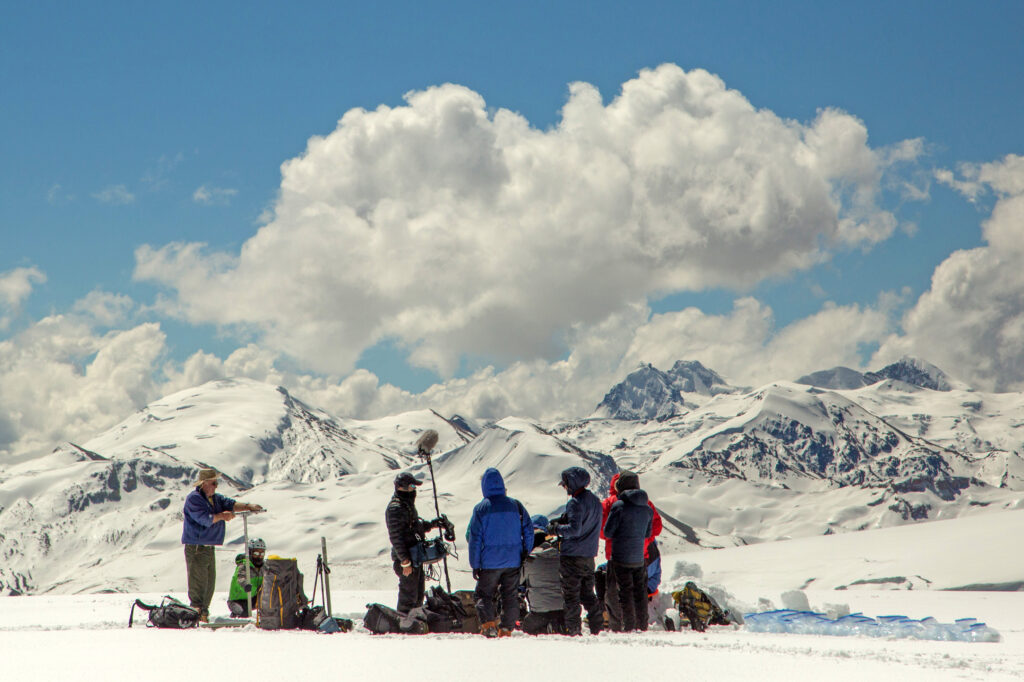
“Every part of making this film felt impossible,” O’Malley concluded. “People told us, ‘You won’t be able to get a crew up this mountain, you have to downsize your dreams. Use cheaper cameras, less quality.’ We were told people wouldn’t care about science stories. People thought it all was too hard, and there were times we definitely believed that, too.”
O’Malley said collaboration with Rivest was crucial to maintaining confidence and finishing the project.
“I’m persistent with creative problems, but I spend most of my life in edit bays. He was a world traveler, a problem solver,” he added. “Being an MIT-trained neuroscientist, he had a different outlook on things. He would say, ‘Well, let’s find a way,’ whenever we were backed into a corner. He taught me a lot about how much is actually possible.”
Moving Forward
So what should viewers do with the inspiration and knowledge they gain from O’Malley’s film? He says the “first, easiest” move might be to donate funds to the Thompsons’ effort to continue the storage and analysis of the collection of ice cores amassed over decades. The CANARY Ice Core and Education Fund, developed along with the filmmakers and hosted by the Columbus Foundation, seeks to raise money for this purpose.
“When we started this ice core group many years ago, we made one measurement — that was it. We measured the insoluble dust, the dust that falls out on the glacier,” Ellen Mosley-Thompson is quoted saying in a Columbus Foundation profile. “Now, because of the development of more equipment and asking more complex questions, we measure probably 50 or 60 things, if you add every element. We’re really just beginning to scratch the surface.”
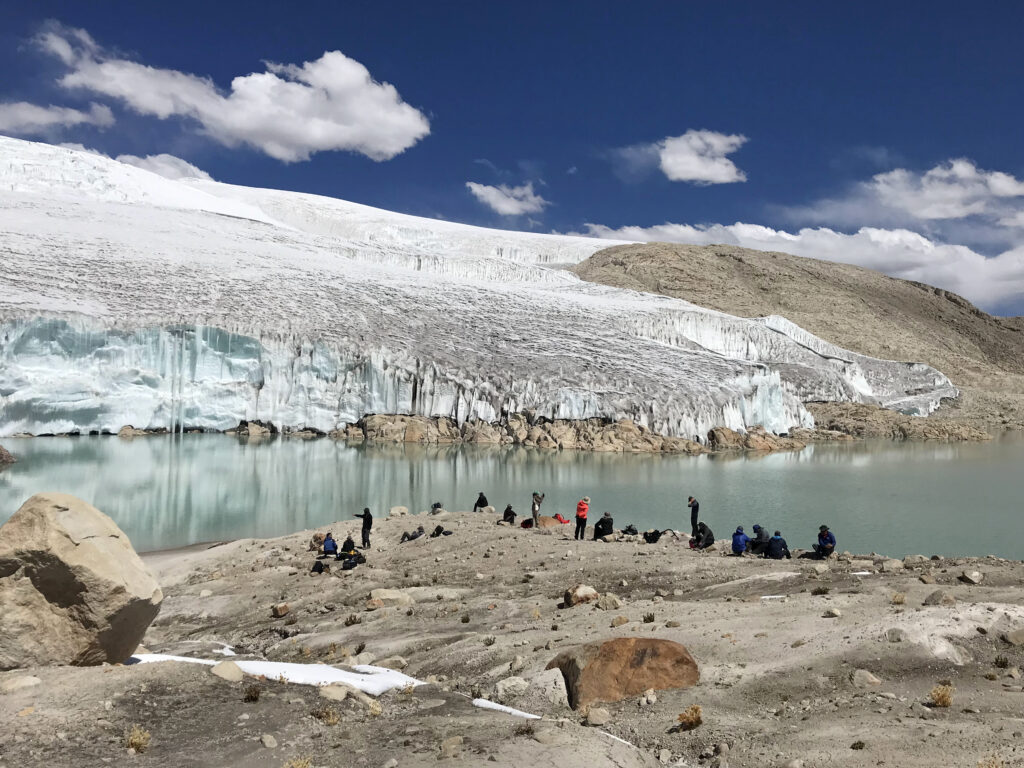
On a larger level, people can do their part to try to mitigate climate change, through their daily actions and through civic engagement, including this election year.
“Another way you can make a difference is to become a climate voter,” O’Malley said. “In our country it’s pretty simple — there’s one party going backwards, and a party that’s solving it but not fast enough. I’d rather have the party that’s solving it but not fast enough.”
Making the changes needed to curb climate change “might sound scary,” he said. “But a lot of these climate solutions will lead to cheaper energy, cleaner air, these things you’d want anyway. It’s really a chance to improve so many problems beyond climate change, if you address climate change.”
Meanwhile, in his own career, O’Malley’s driving goal and passion now is to revive the television series about scientists.
Just as believing the science is crucial for combatting climate change, O’Malley hopes providing a window into science and scientists for the general public will help us address our collective and individual problems, hopes and dreams.
“These are all very epic relatable science stories,” he assured. “If you took the science out of them, people would see themselves and their own stories. We have been at this journey of changing the way people see scientists for almost 10 years now, and we’re hoping this movie is just the beginning.”
How To Help:
As mentioned above, the best way to support these efforts — which have global impact — you can donate to the CANARY Ice Core and Education Fund.

More from Better:
- Jane Goodall Shares 3 Reasons She’s Optimistic About the Future of the Environment
- ‘They Helped Save My Life’: How Ignatian Spirtuality Project Impacts People Facing Homelessness and Addiction
- 30 Best Things to Do in Chicago and the Suburbs This April 2024
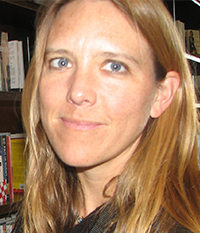
Kari Lydersen is a Chicago-based journalist, professor, and author who specializes in topics including energy, environment, labor, and housing. She leads the Social Justice & Investigative specialization in the journalism graduate program at Northwestern University, and she has written for outlets including The Washington Post, The New York Times, The Guardian and Huffington Post. She is the author of five books.

